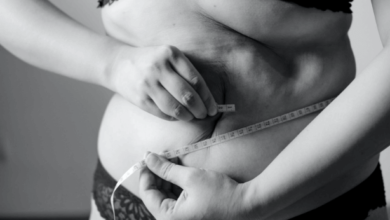How to Prevent Infection When Somebody is Bedbound

Home or hospital care for a bedridden loved one demands compassion and patience. Along with medical therapy, comfort, dignity, and emotional well-being are essential. To make hospital patients feel better, it’s sometimes about connecting and supporting them, not just choosing the nicest presents.
Understanding Bedridden Patient Needs:
When someone is bedridden, their world shrinks. Bedridden patients might develop pressure sores, contractures, and mental discomfort due to medical conditions, surgery, or old age. A thorough treatment plan that covers all patient needs is essential.
Effective care begins with understanding patients’ everyday problems and emotional needs. Confer with doctors often to adjust the treatment plan as the patient’s condition changes.
1. Preventing pressure sores and skin breakdown
Bedridden individuals can develop pressure or bed sores due to stress on sensitive areas. To prevent sores:
●Reposition the patient every two hours.
●Use pillows or foam wedges.
●Invest in pressure mattresses from Forte Healthcare that can relieve pressure.
●Maintain clean, dry skin with baths and moisturisers.
2. Personal hygiene
Bedridden individuals require good hygiene to prevent infections and maintain dignity.
●Regular baths with lukewarm water and no-rinse soap are essential.
●Incontinence management involves changing diapers and using barrier cream.
●Oral care involves brushing or using mouthwash to prevent infections.
3. Proper nutrition and hydration
Healthy eating, hydration, and nutrition are essential to patient wellness. Here are things to look into:
●Provide nutritious meals.
●Consult a doctor if swallowing issues persist.
●Ensure adequate water intake to prevent UTIs and renal issues.
4. Promoting exercise
Promoting exercise and physical treatment can prevent muscular atrophy and enhance circulation.
●Refer to a physical therapist for gentle activities.
●Passive exercises for bedridden patients can improve their well-being.
5. Giving emotional support
Emotional support is crucial for bedridden individuals dealing with mental health issues.
●Engage with the person through conversation, reading, and movies.
●Promote social interaction through visits and events.
6. Making it relaxing
The patient’s room should be relaxing. To create a relaxing patient room:
●Ensure proper lighting, maintain a clean and organised space.
●Incorporate enjoyable items like photographs, artwork, or plants to enhance the patient’s experience.
7. Dress them comfortably
In addition to aesthetics, dressing a bedridden patient comfortably is essential for their health and well-being. Bedridden patients may avoid skin irritation, move more efficiently, and increase their attitude and self-esteem with adaptive garments.
•Choose soft, breathable, skin-friendly textiles. Avoid abrasive or heat-generating materials.
•Bedridden patients need easy-to-wear clothes. Open-back adaptable clothing is perfect and useful for bedridden people since it accommodates medical equipment, reduces pressure sores, and makes medical exams and treatments easier. These innovations make dressing and undressing easier for patients and caregivers.
•Regular clothing changes are crucial for patient hygiene and preventing skin concerns. This lets you check for new pressure sores or skin breaks.
Summary
Providing care for a bedridden patient may be a demanding but gratifying duty. We must not simply meet their physical requirements; we must also take care of their mental health and uphold their dignity. By using these suggestions and bedridden patient care solutions, you may significantly improve the life of your loved one or patient. Recall that even the most minor acts of kindness may significantly impact someone’s quality of life.





